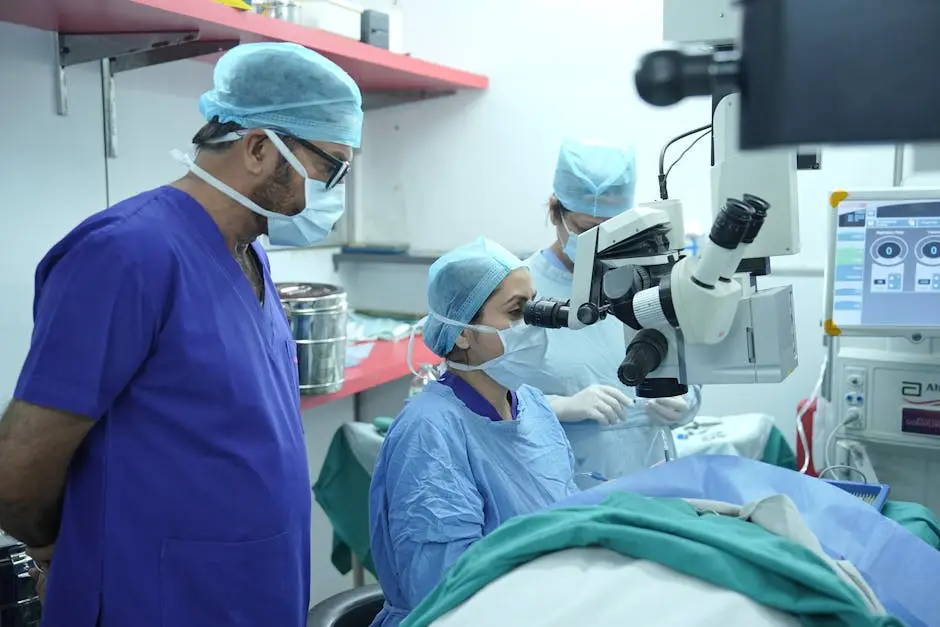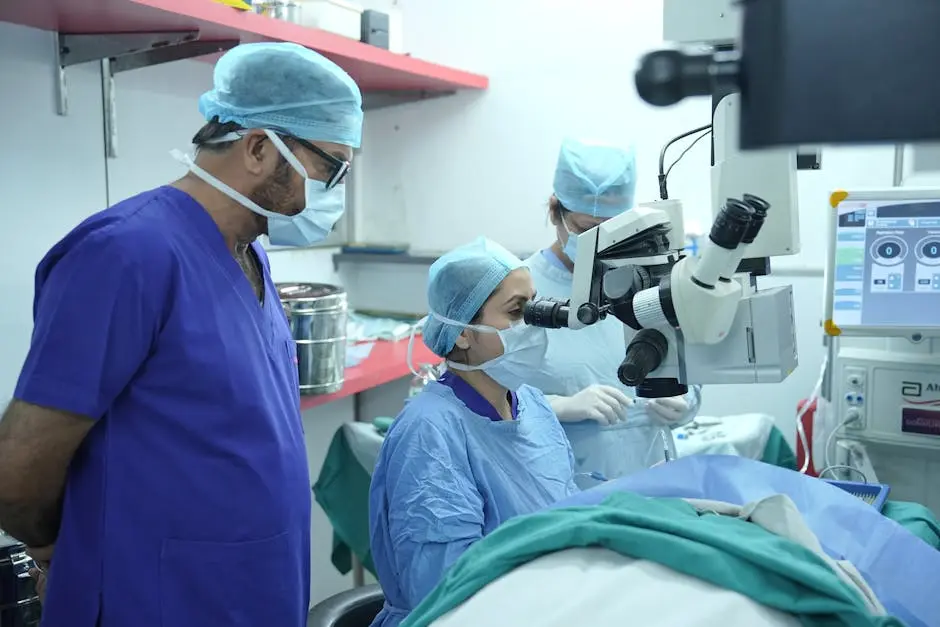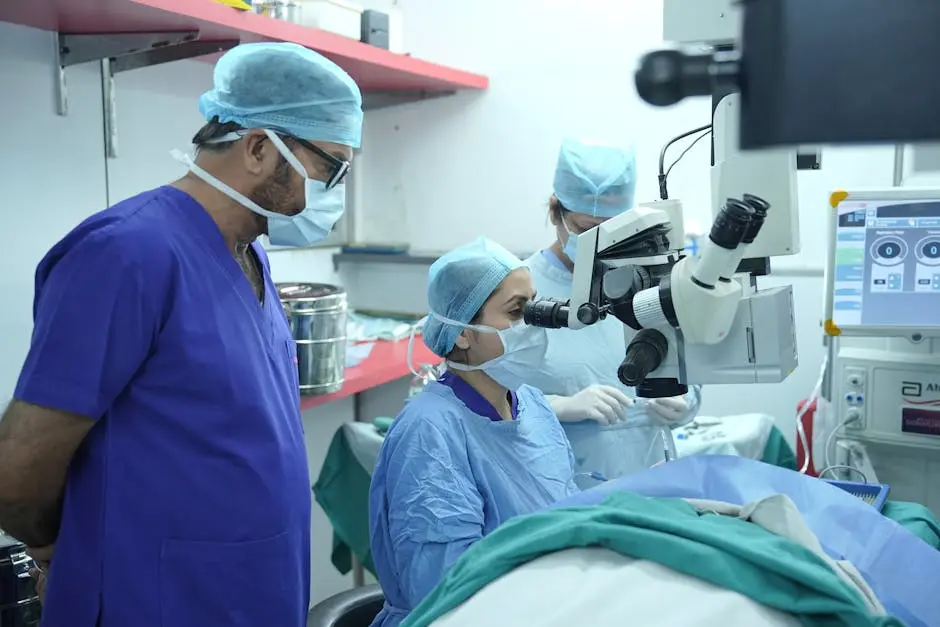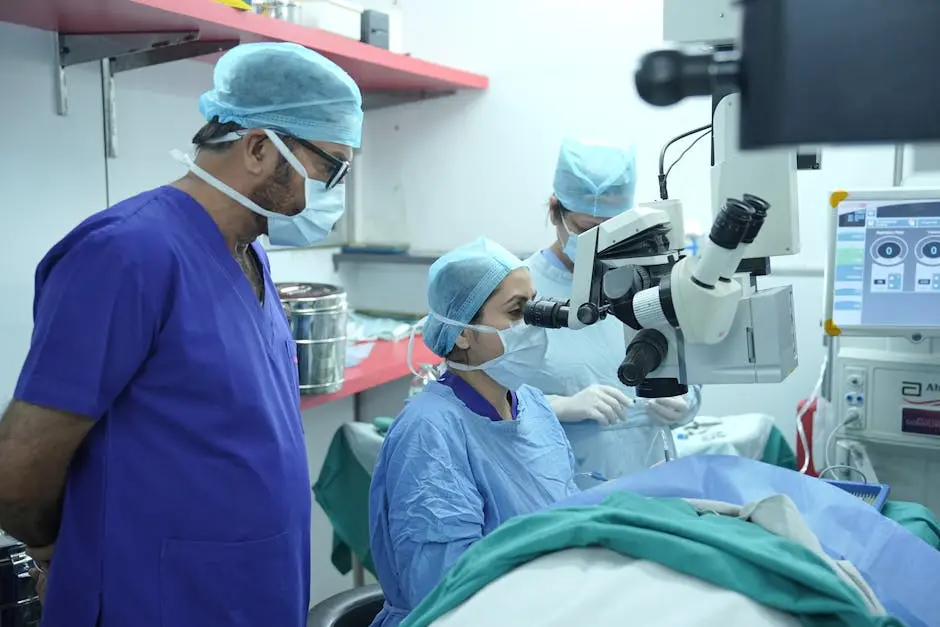8 Common Fears About Eye Surgery and How to Overcome Them
Eye surgery can be a daunting prospect for many. Concerns about the procedure, recovery, and potential complications can often overshadow the benefits. In this blog, we’ll explore some of the most common fears about eye surgery and provide practical advice on how to address them.
1. Fear of the Unknown: What Really Happens During Eye Surgery
Many people fear the unknown aspects of eye surgery, from the procedure itself to what they might experience during it. Educating yourself on what to expect can significantly reduce anxiety and help you feel more in control. The process usually involves a detailed consultation with your ophthalmologist, during which they will explain every step of the surgery and address all your concerns. Visual aids or videos demonstrating the procedure can be particularly helpful in demystifying what happens in the operating room.
Understanding the detailed steps of a surgical procedure often helps reduce anxiety. Each stage of the surgery is carefully planned and performed by skilled professionals. For instance, the use of lasers in LASIK surgery has revolutionized the process by minimizing risks and enhancing precision. By familiarizing yourself with these advancements, you can approach the surgery with a more informed perspective.
2. Worries About Pain During and After the Procedure
A common concern is the level of pain associated with eye surgery. Understanding the anesthesia used and post-operative pain management strategies can ease these worries. Numbing drops are typically applied before surgery to ensure a virtually pain-free experience. Post-surgery, mild discomfort is expected, but it is usually manageable with prescribed medications.
It’s reassuring to know that most patients report minimal pain following eye surgery. Advanced eye surgery techniques often prioritize patient comfort. For more extensive procedures, sedation may be used, ensuring that you experience little to no pain during the operation. Furthermore, keeping open communication with your doctor about any discomfort post-surgery can help address any issues promptly.
3. Anxiety About Potential Complications
While complications can occur, they are rare. Knowing the risks and how they are mitigated can provide peace of mind. Advances in medical technology and rigorous surgical protocols have significantly reduced the rate of complications in recent years. Researching reputable institutions and experienced surgeons is a crucial step in choosing the right place for your surgery.
Discuss any specific worries you might have about complications with your surgeon during your pre-operative consultations. They can provide statistics and personal experiences that will help put your mind at ease. For example, the chances of developing complications like infection after cataract surgery are extremely low, thanks to sterile techniques and modern antibiotics. By ensuring a thorough understanding of these factors, you can approach your procedure confident in the knowledge that every precaution is being taken to protect your health.
4. The Fear of Vision Loss or Impairment
The possibility of losing vision is a significant fear. Understanding how surgery is designed to improve vision rather than worsen it helps alleviate this concern. Techniques like LASIK and cataract removal have high success rates, improving not just your vision but your quality of life.
Most eye surgeries focus on correcting and enhancing vision. For instance, cataract surgery replaces your clouded lens with an artificial one, restoring clarity and brightness to your sight. Educating yourself about how these surgeries work and their success stories can provide reassurance and hope. It’s also helpful to speak with individuals who have undergone the surgery successfully.
5. Apprehensions About the Cost of Surgery
Financial implications can be worrying. Learning about insurance coverage, payment plans, and cost-effective options can reduce financial stress. Comprehensive health insurance often covers a significant portion of eye surgery costs. During your initial consultation, discuss potential out-of-pocket expenses and explore available financing options.
Consider that investing in eye surgery can lead to long-term financial savings. Improved vision can reduce or eliminate the need for glasses or contact lenses, which can add up in costs over the years. Exploring various financial aids available can also ease your worries about the economic burden of surgery. Being well-informed about the costs and prepared for the expenses can significantly reduce anxiety about this aspect of eye surgery.
6. Concerns Regarding Recovery Time
The recovery process can seem lengthy and uncertain. Knowing the typical timeline and tips for a smooth recovery can help manage expectations. Generally, recovery times vary depending on the type of surgery. LASIK patients, for example, often experience significant improvement in vision within a few days, while cataract surgery recovery might take a few weeks.
Following your doctor’s post-operative care instructions is crucial for a swift recovery. This can include rest, use of protective eyewear, and avoiding strenuous activities. For example, specific post-operative medications can aid in reducing inflammation and discomfort, expediting the healing process. Understanding these guidelines thoroughly can help you set realistic recovery goals and effectively plan your return to daily activities.
7. Fear of Long-term Effects
Worries about long-term effects of eye surgery are common. Discussing these possibilities with your ophthalmologist can provide clarity. Most people experience profound, lasting improvements to their vision post-surgery. You can expect detailed information on how to maintain these results over the long term from your medical team.
While some adjustments in vision might occur as part of aging, these are typically unrelated to surgery. Procedures such as LASIK are designed to have enduring effects, often with no regressions. Regular eye check-ups post-surgery can help ensure your eyes remain healthy and that any potential issues are caught early. This proactive attitude significantly reduces fears of negative long-term effects.
8. Apprehension About Going Alone
The thought of facing surgery without support can be intimidating. Arranging for support from friends or family can alleviate this fear. Having someone accompany you on the day of the surgery can boost your morale and offer practical support.
Establishing a support network can make a significant difference. Whether it is arranging for someone to transport you to and from the surgery or just having a friend on hand to help with errands as you recover, it can be comforting. Moreover, support groups or online communities can provide additional emotional assistance, connecting you with others who have had similar experiences and can offer insights and encouragement.






